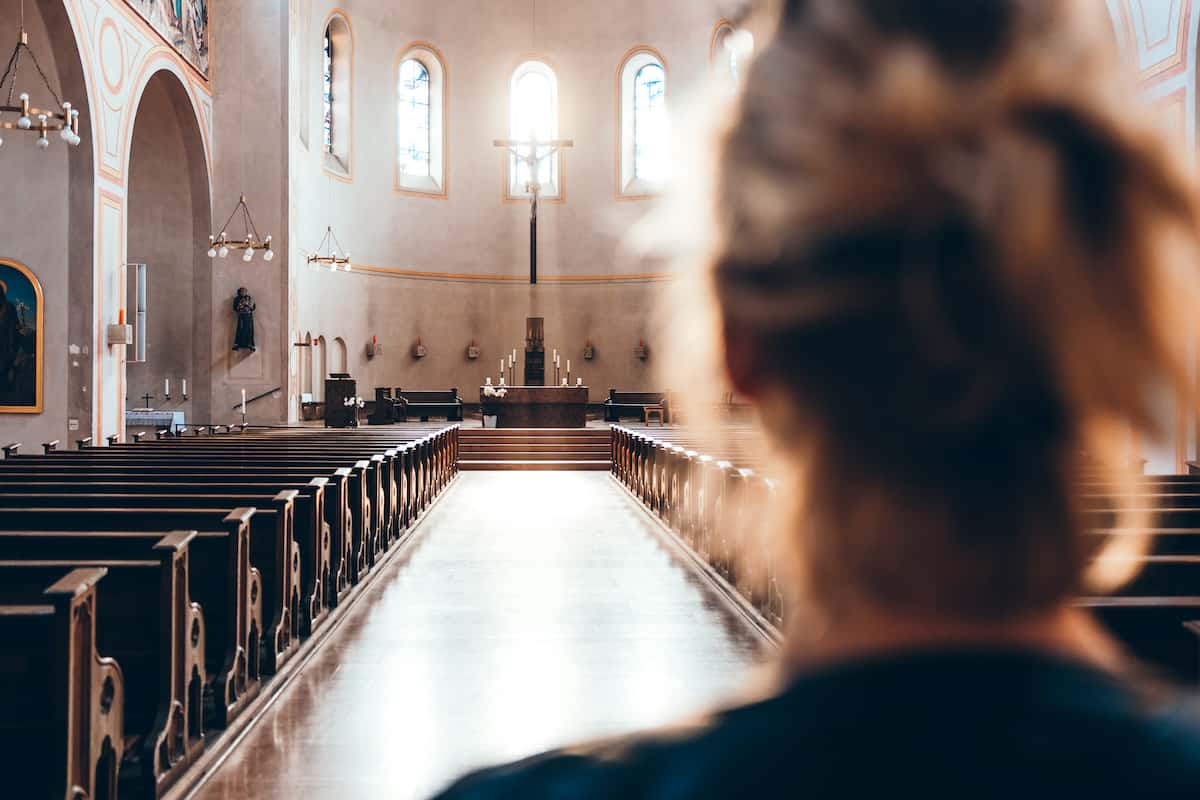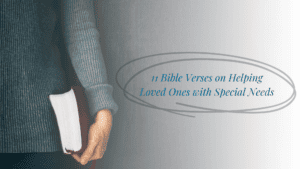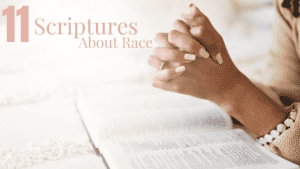As the mother of children with disabilities, I have witnessed first-hand, the challenging circumstances in which the church has failed to be a Sanctuary. I am writing this from the perspective of a parent who has children with disabilities. The stories I will share are also the experiences of other parents of children with disabilities. To be clear, I am not speaking on behalf of those with disabilities. They have their thoughts, feelings, and voices that need to be heard. My hope is that, by sharing from a parent’s perspective, I can shed light on how this issue pains the heart of God.
I realize that I am writing some harsh words to the church, and I need you to know that this is coming from a desperate place of love. Please, don’t think that every congregation is failing when it comes to this issue. However, don’t assume that this isn’t an issue in your local church. The inclusion of people with disabilities in our churches isn’t merely a pro-life issue. It is also a Biblical one.
No Sanctuary
“He will never give anything back to you.”
As I stared up into the eyes of the man we trusted would help us complete our adoption, I tried to process his words. I was caught off guard and disgusted by the statement. My son’s worth was questioned by someone I thought was on our side.
We assured him that we did not come for a “healthy baby.” Our goal was to ransom a 6-year-old boy who had spent his entire life existing in a crib.
I wish I could tell you that was the last time I ever felt the confusion and pain that comes with having a child with disabilities. It is earthshaking to realize that someone who should have been a champion for your child’s life does not see him through God’s eyes. No words can describe how disheartening it is when a fellow believer doesn’t see your child as someone made in His image — precious, worthy of love, respect, and connection.
Pro-Life or Anti-Abortion?
I don’t think anyone would argue that people with disabilities are often mistreated and isolated in our world. But what most may not realize is that some of the most painful experiences happened behind the walls of a place that should be a shelter and refuge for all who enter — the church.
After adopting our children who have disabilities, I began to see a disconnect with many people who consider themselves “pro-life.” I would hear the outrage over the fact that so many babies who have Down Syndrome are aborted. These same people would then look on my daughter with pity and comment on how my husband and I were such saints to adopt children “like that.”
I would see impassioned posts on Facebook about how every life matters to God. Later, I’d be left in tears after hearing dismissive comments about they aren’t “called to that” or that they “don’t have the patience” to work with people who have disabilities. It was as if they thought God put some people into different categories for only certain people to love and care over.
Experiences like this lead many who love Jesus to distrust those who call themselves His Body. These experiences cause us to doubt your passion for being pro-life. Are you only pro-life for the child until it makes it outside of the mother’s womb? Or perhaps, are you only pro-life for babies that have neurotypical brains and bodies?
Disabilities In The Church: A Parent's POV.
As a parent of children with disabilities, it’s common to hear a fellow church-goer say that all lives are made in God’s image. How discouraging it is to then see you turn a blind eye to discrimination.
Isolated from non-disabled church goers.
We trust you by putting our children in Sunday School. Then, after numerous times of finding them sitting at a table by themselves while all the other kids sat together, we get the message that inclusion isn’t something that matters to you.
When you said the new building would be a blessing, we celebrated with you. Then we showed up to find a large set of concrete stairs was the only way to get from the children’s ministry to the sanctuary. Instantly, we felt fear and heartbreak for our son, who is in a wheelchair.
As if that wasn’t enough, the message was loud and clear when we heard the pastor happily proclaiming how the city exempted them from the original plans that had included a wheelchair ramp. What did we hear? You prioritize parking spaces, the convenience of the non-disabled, over the necessity and safety of those with disabilities.
How can you say that all are welcome in your church when those with disabilities are unable to safely enter your building?
Segregated from other children.
When you told us our teenager could be a “baby angel” in the Christmas program, we inferred that you don’t see him as worthy of respect and dignity. And when we went to sign our daughter up for Vacation Bible School but were told that she couldn’t come because of her Down Syndrome, we heard yet another message. Even though Jesus let the little children come to Him, you don’t think that applies to children with an extra chromosome.
Many of us are told that our children are welcome in Sunday school as long as we stay with them. What we hear is that you see our children as our responsibility, not as members of this Church family.
I experienced this situation myself, and after that service, I climbed in our vehicle and broke down in tears.
It is not uncommon that parents, many starved for worship, fellowship, and respite, are made to choose between their child going to Sunday School and their own Spiritual needs.

Separated from the church entirely.
When you told me the only place my children could go during the service, in a 700,000 square foot building, was a small dark room dedicated to people with disabilities (birth–senior citizen), that sent a message too. You see people with disabilities a blemish that must be hidden away on Sundays.
And when the Sunday School teacher said my son was “ruining her Sunday School class” because he wouldn’t do the worksheets (he is blind and physically could not do them) — that message was loud and clear. You care less about loving the vulnerable than you do about completing worksheets about God’s love.
And More
These are just a few of the stories sent to me when I asked the parents in the disability community to share their church experiences.
Believe me, there are countless more. Everything from parents who told me their child was ignored by the church, to parents who witnessed their children being openly mocked by those in leadership. Some of the most heartbreaking stories were from friends who felt the church kept making it so difficult for their family that they had no choice but to leave altogether.
A sanctuary for most?
Sometimes, churches tell parents that their child cannot attend children’s ministry, but then ask them to leave the service when their child is too loud or disruptive. How many Sundays would you sit alone outside the sanctuary doors with your child or teen before deciding there was no point?
In most of the stories above, my friends ended up leaving the churches they were attending. Some of them have found hope and healing in different congregations or denominations. Several left only to encounter similar experiences somewhere else. Others have left the church altogether. These are people who love Jesus. Many parents have sacrificed significantly to adopt high-risk children, only to turn around and find that their families are no longer welcome within the church they once called home.
When disabilities aren't welcome in the church.
Some of us choose to forgo attending church because they are tired and weary. We fight all week long to advocate and care for our children only to reach Sunday and find that the place that should offer solace is often the hardest place to go. For those who have children in wheelchairs, churches are often inaccessible. Because the church is a religious organization, it is exempt from the requirements of the ADA (Americans with Disabilities Act).
Instead of seeing this as an incredible opportunity to create spaces where people with disabilities know they are welcome, it’s so often used to justify the discrimination of the disabled. If they happen to find a way inside our buildings, churchgoers treat them like a service project rather than a valuable member of the Body of Christ.
For the church, accessibility and a safe, welcoming environment for those with disabilities is vital. However, the special treatment should stop there. People with special needs are human, just like you and me. They want to be seen and treated with respect and kindness, to be known and talked to (yes, even if they are nonverbal).
Church, they need you!
When we do not include those with disabilities, everyone suffers. The individual, the family, and the church are incomplete. When you place children with special needs at different tables or confine them to separate rooms, you send the message to other children that there is something wrong with those who look and act differently.
The church should be a reflection of the person of Jesus. When we practice discrimination, we do more than harm our witness. We also wound the heart of the Father:
"The King will reply, ‘Truly I tell you, whatever you did for one of the least of these brothers and sisters of mine, you did for me.'"
Matthew 25:40 Share
Church, you need them!
Some people look at our family through the eyes of pity. They see our children as burdens, but I wish I could get the church to understand that my children’s disabilities have been the avenue God has used to free me from the toxic burdens of ableism, pride, and legalism. When I read the experiences of families who have been hurt by the church, it’s clear that many churches are still bowing to these idols.
Reading the Scriptures, I see Jesus repeatedly, bringing this message of what our focus should be on while we journey through this Earthly life. It’s a message of making ourselves last and losing our life. He makes it clear that it will be those who are considered the least in this life that will receive the place of honor in the next. If loving my son and daughter has taught me anything, it is that I need to be more like them. Before knowing my children, I pitied those with disabilities, because I thought they couldn’t understand God’s higher things. I was wrong, and that is what I wish I could get the church to see.
The Banquet
Jesus tells a story of the great banquet. It’s a parable about a man who was throwing a party. He sends his servants to tell those who are invited that everything is ready, and it’s time to come on in. But they all began to make excuses about why they were too busy to come. When the servant relays this to the master, he is angry and then tells the servant to “go into the streets and alleys and to bring in the poor, the crippled, the blind and the lame.” (Luke 14:21)
The kingdom of God belongs to those who cannot repay with earthly blessings. I struggle to even write this, fearing what it insinuates — that our facilitator was correct, and our son has not given anything to us. In reality, our son has given much more to us than we will ever give to him.

He gives in a truly indescribable way, in a way that has allowed us to see Jesus more clearly than we ever could have without knowing him. I think that is what Jesus was addressing when he commands us to make room and welcome those who cannot repay us.
Who are we inviting?
I do not believe we can create lasting change if we do not address the sin that is at the root of discrimination. We must each ask ourselves if inclusion is worth it to us. Do we see people with disabilities as an inconvenience or as valued and indispensable members of the Body of Christ?
Being Pro-Life (For All)
I believe this goes to the heart of what it means to be pro-life. We cannot believe that all lives are created by God with worth and purpose and then treat human beings who are made in his image with disdain. How can we believe in the value of life for the preborn, but then treat those born with disabilities as if they do not matter? If we do this, are we any better than those who give value to the born and not the preborn? No.
Embracing Those With Disabilities In The Church.
If we want people to believe we are serious about the value of all lives, then we need to realize this issue of inclusion is personal.
My son has taught me that although I have always been able to walk, I was not always moving closer to God’s heart. He has shown me that although I have always had earthly sight, I was blind to what truly matters in this life. My daughter, who is nonverbal, has taught me that words without love are empty vessels, void of purpose. From living life with her, I’ve discovered her extra chromosome is a constant reminder of Christ’s unhindered love.
My goal is simple. I want to send the message to the church that families who have children with disabilities need you and you need them.
Some precious truths, some blessings, are only gained by sitting at the banquet table with those the world has cast aside. Will you come to the banquet, Church?




















